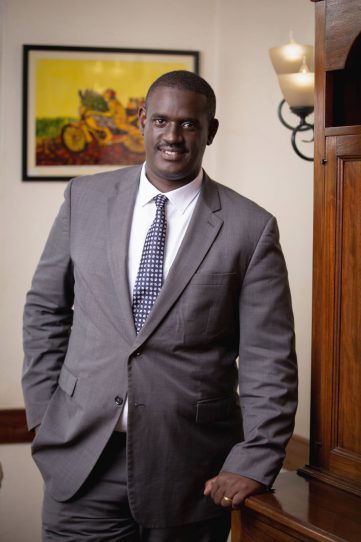The Democratic Republic of Congo has announced a licensing round for its oil blocks. It plans to issue 30 new licenses. These potential oil fields in Congo are not too far from Uganda. The two countries have the potential to share common infrastructure including the East African Crude Oil Pipeline to help commercialize Congo’s oil. We can also share expertise, experience and challenges of developing the resources in much the same area. There is much Uganda and DR Congo can learn from DR Congo as it embarks on this round of licensing. Uganda too, is expected to license other oil blocks next year. There is also much DR Congo can learn from Uganda’s experience thus far so that the Congo’s oil story is developed much faster.
One thing we certainly will share is the strong opposition from global NGOs and negative reporting from a section of the Western press. The decision by Congo to develop its resources has already been greeted with anger and horror from the usual corners. PBS Newshour, the American public broadcaster run a story titled “Rain Forests in the Congo Basin are under threat as the DRC opens land to oil, gas drilling”. PBS Newshour also tweeted that “The Democratic Republic of Congo is selling 30 oil and gas drilling blocks across some of the Congo Basin, including in parts of the Virunga National Park, home to the only mountain gorillas left on the planet.” The decision by DRC to exploit its own resources has given renewed energy to global activists to oppose the Ugandan project. Why? They believe that if Uganda succeeds in producing oil, then DR Congo will certainly produce oil too and Africa generally will have an exploration resurgence. If on the other hand they are able to stop Ugandan oil, it is unlikely, they think that other African countries will succeed.
For DR Congo all its concerns about sovereignty and poverty will fall on the deaf ears of a climate lobby. In fact, at the UN climate meeting in Scotland last year, Congo was promised US$1.5bn to protect the rain forests and not develop its oil. Congo has however been firm that it will develop its resources as has Uganda. DR Congo has promised to conduct a robust environmental impact assessment before oil production. They have also underscored the need for access to energy to counter poverty in the vast Congo.
The power of energy access in the fight against poverty cannot be overstated. I recently had an interesting conversation The Permanent Secretary Ministry of Energy and Mineral Development Eng Irene Batebe. She pointed out that a recent study done by the Ministry of Finance showed that when people have access to electricity it has a higher impact on poverty reduction than any other intervention. Indeed, the whole world is currently going through a terrible economic period and massive global inflation on account of disruptions in the supply of oil caused in part by Russia’s invasion of Ukraine and the corresponding sanctions.
In a bid to slow down DR Congo’s oil exploration US Secretary of State Anthony Blinken visited the Congo and expressed “concerns”. He said at a news conference that; “We had concerns about the announcement of the auction of these oil and gas exploration blocks, some of the blocks infringe on sensitive rainforest and peatland areas, including in the Virunga National Park and Salonga National Park.” He acknowledged the need for Congo to develop its resources and agreed that a joint US Congo team would review any Environmental studies to ensure biodiversity and the environment are not compromised. Secretary Blinken’s assistance in the environmental studies are certainly most welcome.
Ironically, as the Secretary expressed his concerns about the pristine environment of the Congo, the US consumed approximately 20 million barrels of oil on that very day. A 2012 report showed that The US which has 5% of the World’s population consumes 25% of all global energy. Infact one American citizen consumes almost as much energy as 307 Tanzanians. America can consume the equivalent of all Uganda’s oil every 75 days. As Blinken and the US public broadcaster PBS are concerned about oil in Congo’s parks, the US has 534 active oil and gas wells along 12 units of the US Park system.
This the problem that global campaigners will continue to face in Africa. Are they really concerned about clean energy or are they concerned about Africans using energy at all?



